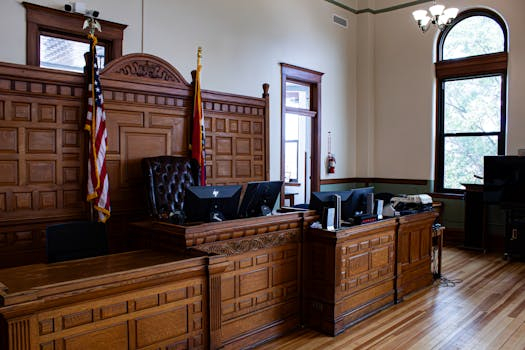The Salem Witch Trials: Legal Lessons from a Historical Injustice
The Salem Witch Trials of 1692 were a series of events that shook the small town of Salem, Massachusetts. From accusations of witchcraft to mass hysteria, this dark period in history continues to captivate our imagination. However, beyond the superstition and myth, the Salem Witch Trials also offer valuable legal lessons that still hold relevance today. In this article, we will delve into the legal aspects of the Salem Witch Trials and explore how this historical injustice can still provide us with important insights. 
The Accusations
The Salem Witch Trials began when a group of young girls claimed to have been possessed by the devil and identified certain individuals in the town as witches. As the accusations spread, more and more people were arrested and charged with witchcraft. The trials were conducted in a chaotic and deeply flawed manner, with little regard for due process or evidence. Many of those accused were found guilty and sentenced to death, while others were left to suffer in overcrowded and unsanitary jails.
The Power of Fear and Hysteria
The events of the Salem Witch Trials were fueled by fear and hysteria. The Puritan community of Salem was deeply religious and believed in the existence of witches and the devil. This fear and belief were further intensified by the ongoing conflicts with Native American tribes and the threat of smallpox outbreaks. The combination of these factors created a powder keg of paranoia, which ultimately led to the accusations and trials.
In today’s context, the lessons from the Salem Witch Trials serve as a reminder of the power of fear and how it can be manipulated to justify and perpetuate injustices. This is especially relevant in today’s political climate, where fearmongering and misinformation can lead to acts of discrimination and prejudice.
The Trials and Legal Flaws
The legal proceedings of the Salem Witch Trials were rife with flaws. The accused were often not given a fair trial, with evidence and witness testimony being based on rumors and hearsay. The legal system at the time also allowed for the use of “spectral evidence,” meaning that the testimony of spirits or ghosts was admissible in court. This allowed for the accused to be convicted based on claims made by the alleged victims’ “apparitions”.
The Importance of Due Process
The legal lessons from the Salem Witch Trials revolve around the importance of due process and fair trials. In today’s society, due process and the presumption of innocence are fundamental rights that protect individuals from being unjustly convicted. The Salem Witch Trials highlight how a lack of due process and reliance on hearsay evidence can lead to grave miscarriages of justice.
Furthermore, the use of spectral evidence sheds light on how easily the legal system can be manipulated. In the Salem Witch Trials, it was the fear and paranoia of the community that led to this form of evidence being accepted. In today’s context, with the rise of technology and social media, it is crucial to critically evaluate the evidence presented in court and not allow for it to be influenced by external factors.
The Importance of Learning from History
More than three centuries after the Salem Witch Trials, the lessons from this dark period in history remain relevant. While our legal system has progressed and evolved, there is still room for improvement when it comes to ensuring fair trials and protecting individuals from false accusations. The Salem Witch Trials remind us of the dangers of succumbing to fear and the importance of upholding the principles of due process and the presumption of innocence.
In conclusion, the Salem Witch Trials serve as a cautionary tale of how fear and hysteria can lead to grave injustices. The legal lessons from this historical event highlight the importance of due process, fair trials, and critical analysis of evidence. As we continue to progress and evolve as a society, it is essential to learn from the mistakes of the past and strive towards a more just and equitable legal system.








